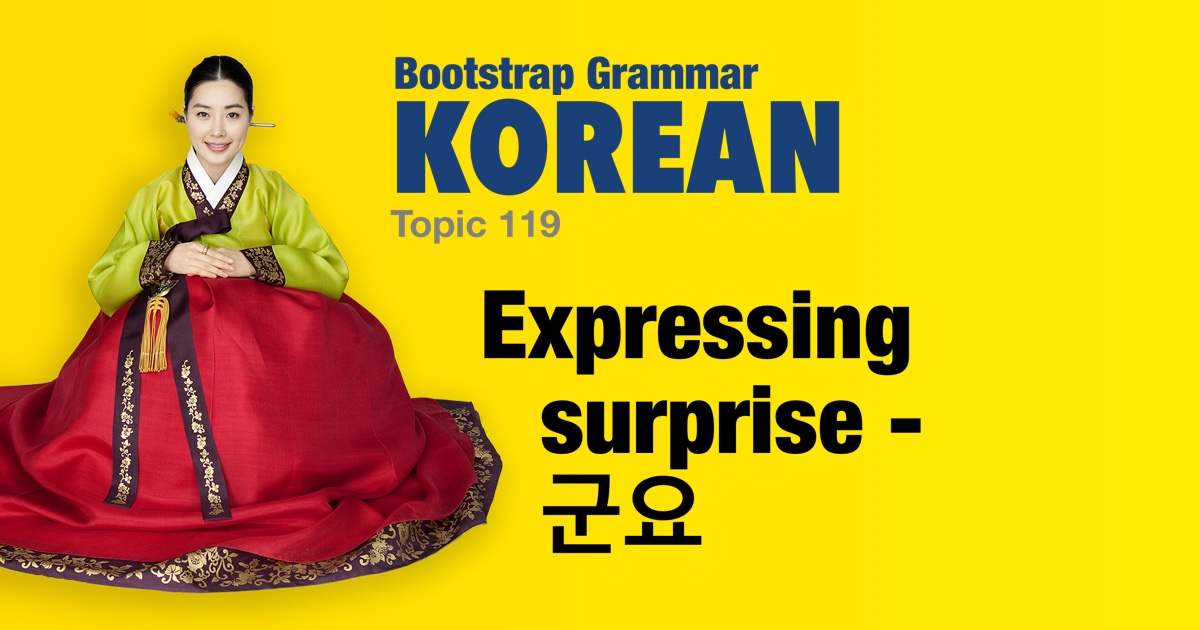Korean grammar - Expressing surprise - 군요 |
|||
|
|||
Pattern: Verb stem + 군요 The pattern Verb stem + 군요 is used to express surprise on discovering a fact (Oh! I didn’t realize that…). In English we might say: 'I didn’t realise at first but now I realise, so I am slightly surprised.' The form used depends on the type of verb or whether it is used with a noun: • Action Verb stem + 는군요 • Descriptive Verb stem + 군요 • Past tense (action and descriptive): Verb stem + 았/었군요 (Past base + 군요) • Noun + (이)군요. The 이 is optional. Recall that 있다 and 없다 are descriptive verbs so 있군요 and 없군요. The informal form is 구나. |
| Examples: | |
|
한국에 가는군요.
(I am surprised to hear that) (you) are going to Korea.
|
|
|
현재 사과는 매우 저렴하군요.
(I am surprised that) apples are very cheap at the moment.
|
|
|
그 책을 너무 빨리 읽었군요.
(I am surprised that) (you) read that book so quickly.
|
|
|
이렇게 하는 거군요.
So this is how you do it!
|
|
|
벌써 11월이군요.
(I didn't realize before but) it's already November!
|
|
|
학생이군요.
(I didn't realise that) (he) is a student.
|
|
|
이거군요.
(I didn't realize that) this is it.
|
|
|
그렇군요.
Ah I see! / (Ah. So it is like that.)
|
|
|
진짜 맛있군요.
(At the table) This is really tasty.
|
|
|
감동했군요.
(Now I see that) (you) are impressed.
|
|
|
결국 여기까지 왔군요.
Finally, (you) have come this far.
|
|
|
그런 이유가 있었군요.
So that was the reason.
|
|
|
제가 실수했군요.
So (now I realise that) I made a mistake.
|
|
|
이 케이크 진짜 맛있군요.
(Actually) this cake is really delicious.
|
|
|
그 사람이 우리 선생님이군요.
(So) that person is our teacher.
|
|
|
어! 눈이 참 많이 오는군요.
Oh! It's snowing a lot!
|
|
|
아버지께서 김치를 좋아하시는군요.
(Your) father likes kimchi.
|
|
|
강아지가 정말 귀엽군요!
The puppy is so cute!
|
|
|
그래서 늦었구나.
(Now I can understand that is why) (you) are late.
|
|
|
집에 벌써 돌아왔구나.
(I) noticed (he) already came back home.
|
|
|
돈이 없겠구나.
(You) will (probably) not have money.
|
|
 |
|


 With the action verb
With the action verb 
